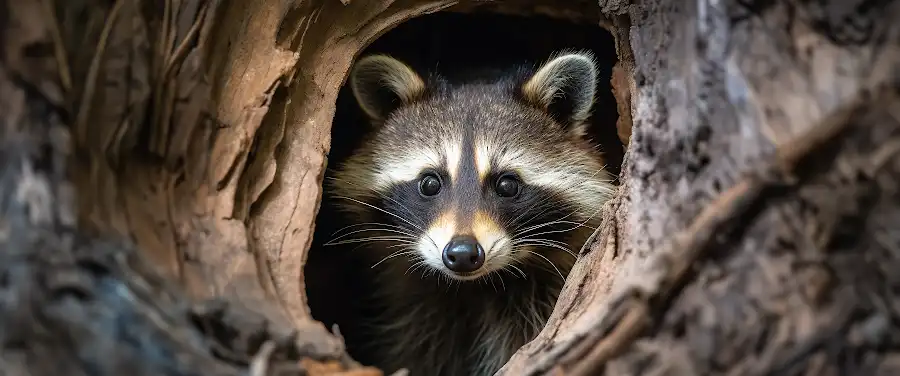Raccoons, while often seen as harmless and even cute, can pose significant risks when they invade residential areas. These animals are notorious for causing extensive property damage and posing serious health risks to homeowners. Understanding the impact of raccoon infestations is crucial for protecting your home and family. This article explores the various health and safety concerns associated with raccoon infestations and highlights the importance of professional removal services, such as raccoon removal by Capital Wildlife Control.
Health Concerns
1. Disease Transmission Raccoons are carriers of several diseases that can be transmitted to humans and pets. Some of the most notable include:
- Rabies: Raccoons are one of the primary carriers of rabies in North America. This viral disease affects the nervous system and is fatal if not treated promptly. Rabies can be transmitted through bites or scratches from infected raccoons.
- Leptospirosis: This bacterial infection can be transmitted through contact with raccoon urine. It can cause flu-like symptoms and, in severe cases, lead to kidney damage, liver failure, or meningitis.
- Raccoon Roundworm (Baylisascaris procyonis): This parasite is found in raccoon feces. If ingested accidentally, the larvae can cause severe neurological damage and, in rare cases, be fatal.
2. Allergens and Parasites Raccoons can introduce various allergens and parasites into your home. Fleas, ticks, and mites commonly infest raccoons and can spread to pets and humans. These parasites can cause itching, allergic reactions, and transmit additional diseases.
Safety Concerns
1. Property Damage Raccoons are highly skilled at gaining access to homes through roofs, chimneys, and vents. Once inside, they can cause significant damage, including:
- Chewing Electrical Wires: Raccoons have a tendency to chew on electrical wires, which can lead to power outages and pose a severe fire hazard.
- Damaging Insulation: Raccoons often tear up insulation to create nesting sites. This not only reduces the energy efficiency of your home but also increases repair costs.
- Structural Damage: Raccoons can damage wooden structures, siding, and shingles while attempting to enter your home.
2. Noise Disturbances Raccoons are nocturnal animals, meaning they are most active at night. Homeowners often report hearing scratching, thumping, and scurrying noises coming from attics or walls. These disturbances can lead to sleepless nights and increased stress levels.
Importance of Professional Raccoon Removal
Given the health and safety risks associated with raccoon infestations, it is crucial to seek professional assistance for removal. Attempting to handle raccoon infestations on your own can be dangerous and often ineffective. Professional services, such as raccoon removal by Capital Wildlife Control, offer several advantages:
1. Expertise and Experience Capital Wildlife Control’s team of experts has extensive experience in handling raccoon infestations. They use the latest techniques and tools to ensure effective and humane removal of raccoons from your property.
2. Humane Removal Methods The professionals prioritize the humane treatment of raccoons, using safe and ethical methods to capture and relocate them. This approach ensures minimal stress to the animals and compliance with local wildlife regulations.
3. Comprehensive Solutions In addition to removing raccoons, Capital Wildlife Control provides comprehensive services to prevent future infestations. This includes identifying and sealing entry points, cleaning and decontaminating affected areas, and offering advice on how to keep your home raccoon-free.
4. Health and Safety Assurance By choosing professional raccoon removal services, you can be confident that your home and family are protected from the health and safety risks associated with raccoon infestations. Professionals have the necessary equipment and training to handle raccoon removal safely and effectively.


